NASHVILLE, Tennessee – State Rep. Eddie Smith (R-Knoxville) and State Sen. Becky Duncan Massey (R-Knoxville) are the sponsors of a bill that would permit the creation of Transit Improvement Districts and is currently targeted to the Knoxville area.
HB2361/SB2354, filed as a caption bill on February 1, by March 14 had a 14-page amendment that “makes the bill” and will add a new part to the Central Business Improvement District Act of 1971, the new part to be known and called as the “Transit Improvement District Act.”
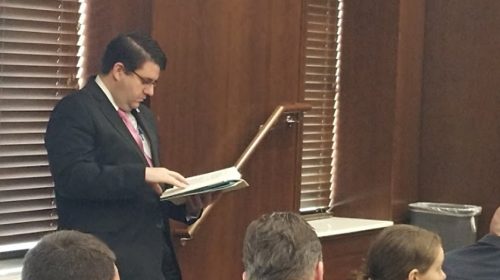
During the presentation of the Act as an amendment to SB2354 to the Senate Transportation and Safety Committee on March 14, Sen. Massey stated that the Transit Improvement District Act mirrors the Central Business Improvement District Act of 1990 before deferring to a witness. Massey’s witness, former Democrat Knoxville council member and failed Knoxville mayoral candidate, Joe Hultquist, began testifying without any introduction as to his credentials, qualifications or interest in the bill, other than stating his name.
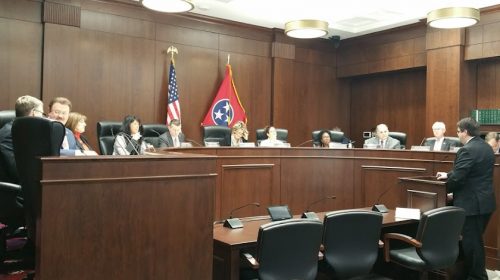
The presentation of the HB2361 amendment to the House Transportation Subcommittee a week later was handled by the House sponsor himself, State Rep. Smith.
The amendment is still not available on the Tennessee General Assembly website under the bill, but The Tennessee Star has secured a copy of what it believes to be is the most current version of the amendment, which can be seen here below:
[pdf-embedder url=”https://tennesseestar.com/wp-content/uploads/2018/03/SmithAmendment.pdf”]
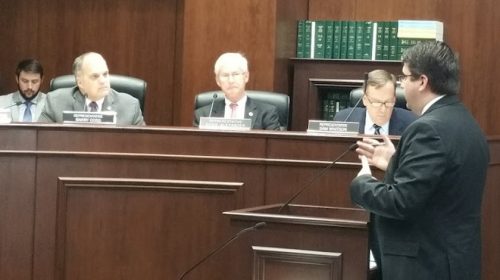
The amendment states, in part, “It is hereby determined and declared that high capacity transit systems both facilitate and require high quality, pedestrian scale, mixed-use development around stations” and further states that such transit-oriented development:
• supports and justifies the investment in high capacity transit
• provides a sound market alternative for those who either need or desire to live, work, shop and recreate in communities wherein the residents, employees, and other users of community facilities and amenities are not wholly dependent on single occupancy vehicles
• municipalities and counties are able to achieve their goals of increased population, higher tax revenues, and healthier, more vibrant communities without excessive traffic congestion, pollution, and other negative factors associated with many common development patterns
Additionally, the amendment states “The general assembly further finds that municipalities should be:
• encouraged to create self-financing transit improvement districts in conjunction with a regional transit authority to enhance their local business climate and encourage population growth in a manageable and sustainable fashion
• given the broadest possible discretion in establishing these districts in cooperation with regional transportation authorities and other municipalities within the transit corridor, and with private development interests, in order to encourage the development of high quality communities within the transit corridor
Essentially, the Act provides for another means of taxation so that a municipality has the power as laid out in the establishment ordinance, which may be delegated to the regional transportation authority, so that it may perform a comprehensive list of activities, such as:
acquire, construct, or maintain parking facilities, transit system improvements, real property or an interest in property in connection with a transit system improvement
provide services for the improvement and operation of the district, including but not limited to
• promotion and marketing
• advertising
• health and sanitation
• public safety
• security
• elimination of problems related to traffic and parking
• recreation
• cultural enhancements
• consulting with respect to planning, management and development activities
• maintenance of improvements
• activities in support of business or residential recruitment, retention or management development
• aesthetic improvements including the decoration, restoration or renovation of any transit system or of such system’s building facades and exteriors in public view that confer a public benefit
• furnishing of music in any transit system
• professional management, planning and promotion of the district
• design assistanceenter into contracts and agreements
hire employees or retain agents, engineers, architects, planners, consultants, attorneys and accountants
acquire, construct, install and operate transit system improvements contemplated by the establishment ordinance and all property rights, or interests incidental or appurtenant to the transit system improvements and dispose of real and personal property and any interest in real and personal property, including leases and easements in connection with real and personal property
Through the Transit Improvement District Act, a district may be established in one of two ways: either by ordinance through a vote of the “governing body of the municipality” or by petition of the majority of property owners who own at least two-thirds of the assessed value of the property to be included in the district. (emphasis added)
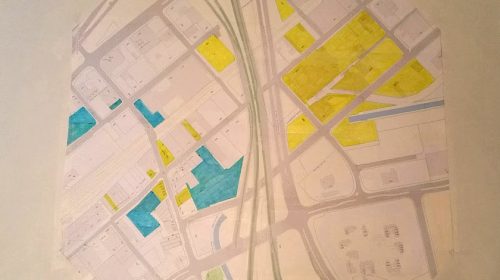
Following a prescribed public notice process, the governing body will hold a public hearing, at the conclusion of which the governing body shall adopt or reject the organization of the transit improvement district. Anyone objecting to the creation of the district who fails to file a protest or appear at the public hearing, “shall be deemed to have waived any objection to the creation of the district, the making of the improvements and the inclusion of such person’s property in the district.”
If the district was initiated via ordinance by the governing body and protested by owners representing more than half of the assessed value of the property to be included in the district, the Act, if passed, allows for gerrymandering to reduce the number of objectors to one half or less.
Once the Transit Improvement District is established, the municipality is authorized to levy special assessments – a tax – “against all properties located within the district to cover all costs and expenses of making transit system improvements within the district and providing the services, projects, and activities to the district.”
The costs and expenses the Transit Improvement District tax will cover include:
• acquisition, construction and maintenance of transit improvements within or serving the district
• planning and feasibility studies, engineering, accounting, legal, surveying, consultant and other professional fees
• administration expenses required to comply with the terms of the Transit Improvement District Act, including costs incurred to establish the district, abstracts and other title costs, payment of principal and premium and interest on any bonds, notes or other obligations
• funding of necessary reserves for debt service, maintenance, depreciation or other items and payment of all costs and expenses of the regional transportation authority authorized in the Act
• provision for additional costs or losses of assessment revenue
After determining the total annual costs of the district to be paid from the special assessments – or the tax, the costs will be apportioned to the various properties in the district “in accordance with the benefits conferred upon the various properties.” The apportionment will take into consideration a variety of factors including square footage, frontage, assessed value, type of use, business classification, location, zones of benefit or a combination of factors.
In what appears to be a pre-emptive measure against objections to how the tax assessment is applied, the Act states, “The fact that assessments may be spread uniformly over a large area within the district shall not be conclusive that such assessment was arbitrarily made.”
To change the rate or impose an additional special assessment rate, the governing body must hold a public hearing.
Because the Act will allow for the condemnation of properties by the municipality, the governing body must keep records of such, as well as properties injured by the improvements and an assessment roll of all properties in the Transit Improvement District.
The dissolution of a Transit Improvement District by the governing body is rather onerous, requiring a written petition by the owners of either 75 percent of the assessed value of the property or 50 percent of the owners of record within the district.
During their presentations of the bill, both Hultquist and Rep. Smith were asked several tough questions by the respective committee members, including State Rep. Courtney Rogers (R-Goodlettsville) in House Transportation Subcommittee, and State Sen. Mark Pody (R-Lebanon), State Sen. John Stevens (R-Huntingdon), State Sen. Frank Niceley (R-Strawberry Plains) and State Sen. Paul Bailey (R-Sparta) in Senate Transportation and Safety Committee, largely related to the protection of rights of small property owners.
Both presenters relied heavily on the explanation that the Transit Improvement District Act has essentially been in place for decades through the Central Business Improvement District Act (CBID) of 1971 and 1990. Neither gave examples of successful implementation of the CBID Act anywhere within the state to demonstrate, as Hultquist testified, that it “has been in use for many years in quite a few cities. I know Knoxville has a CBID and it’s proven to be very successful over the years and not problematic in anyway as far as its function or legal application.”
State Sen. Pody and State Sen. Niceley tried to obtain where and for whom the Transit Improvement District Act was being proposed.
Hultquist revealed, through the course of the exchanges, there is “one particular application” that is not yet public. It will involve a particular low-volume existing freight rail line in Knoxville that may be acquired for this purpose. Hultquist referenced the Music City Star in the greater Nashville area as an example, saying that the existing rail operator would still be able to run freight at night with rail transit vehicles running on it during the day.
Hultquist also offered that the concept being “really development and developer driven” is “less like to be imposed on unwilling parties than the current CBID Act,” under which “that burden can happen.” “Typically a developer would acquire land from voluntary sellers around a station area and they, in turn, would ask for this to be put in place or petition for this to be put in place,” Hultquist said. Although he did add, “I’m not saying that it would never happen, but I think it’s extremely unlikely.”
One well-publicized acquirer of land around rail lines in Knoxville is businessman and gubernatorial candidate Randy Boyd. In September 2016, Boyd made news and created speculation as to his future plans when he paid $6 million for one of the two Knox Rail Salvage properties in Knoxville’s Old City.
According to data available from the Knox County Trustee and Property Assessor official website, between 2016 and 2017 Boyd has acquired at least 17 pieces of property in Knoxville’s Old City under four different names, including three LLCs. The Knox Rail Salvage property was purchased, perhaps with some foretelling, under a limited liability corporation called RR Land LLC.
The more recently purchased properties, including several condos, parking and unused land, join Boyd’s earlier purchases of properties that have been known for several years as Boyd’s Jig and Reel, Old City Java and the Lonesome Dove.
Indicating that this is an area targeted for growth, it has been heavily invested in by The Industrial Development Board of The City of Knoxville, with more than 20 interspersed properties, namely Rebel Kitchen restaurant, Mill & Mine Event Center, Old City Athletic Club and several apartment complexes including White Lily Flats, Stockyard Lofts and Marble Alley Lofts.
On July 6, 2017, Humphrey on the Hill reported that the Transit Improvement District Act’s two bill sponsors, State Rep. Eddie Smith and State Sen. Becky Duncan Massey along with State Sen. Richard Briggs (R-Knoxville) and State Reps. Kent Calfee (R-Kingston), John Ragan (R-Oak Ridge) and Cameron Sexton (R-Crossville) were joining Boyd’s campaign as state legislative co-chairs. The other members of Boyd’s legislative leadership team have yet to sign on to the bill.
The Transit Improvement District Act, as HB2361, passed out of the House Transportation Subcommittee on March 21 by voice vote, with State Rep. Courtney Rogers and State Rep. John Mark Windle (D-Livingston) requesting to be recorded as voting No.
The bill is scheduled to be heard by the full House Transportation Committee Tuesday, March 27 at 1:30 p.m. and on the final calendar of the Senate Transportation and Safety Committee, which is not yet scheduled.

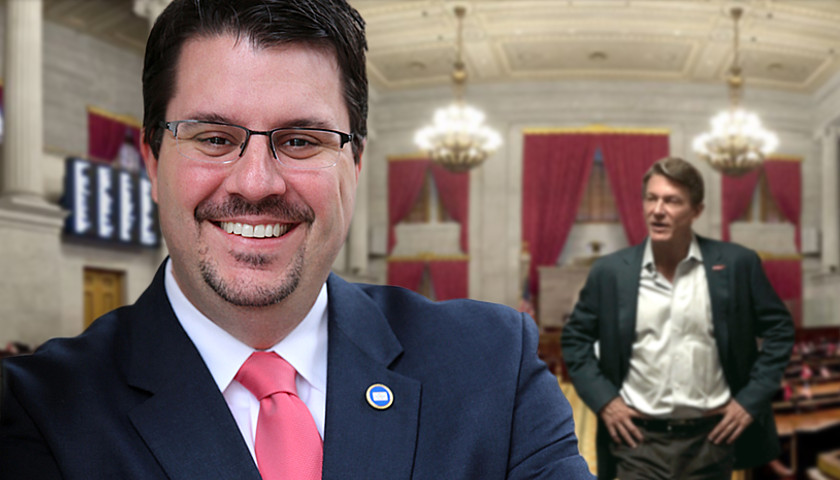

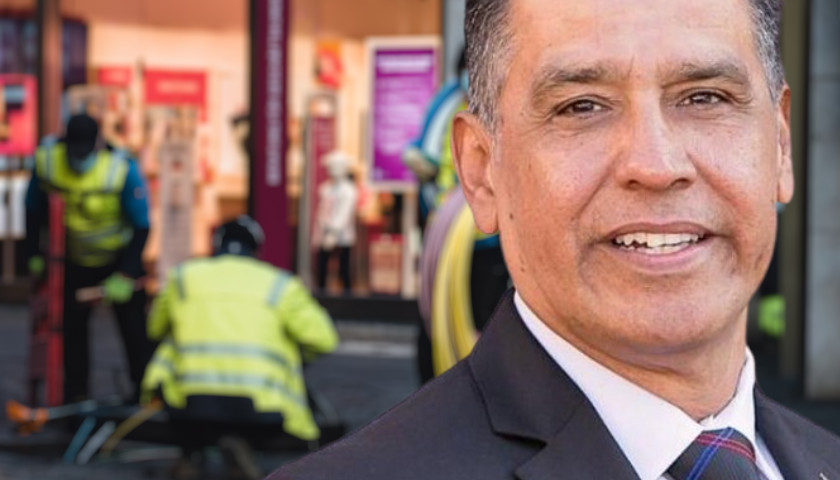


Just a good old boy who pro-life, pro-adoption and pro-sleaze.
WHAT?! So while Boyd was head of Economic Development and claiming to be a “volunteer”, he’s running around securing sweet-heart deals for himself (and setting the stage for his ascencion to the Gubernatorial throne). Wonder what other kind of “deals” he and the Haslam “train” have been putting together for themselves?
Last year, Doss was the lackey and now it’s Smith. This MUST end! Boyd CAN NOT become Governor!